Let’s stay tuned for the Global Digital Compact
What is the Global Digital Compact and why is it important to keep an eye on it?
Placed as one of the United Nations´s key actions to accelerate the achievement of the Sustainable Development Goals, the Global Digital Compact is being proposed by the UN´s Secretariat as a “key text for digital cooperation” to be agreed at the Summit of the Future, in September 2024. The Global Digital Compact is expected to be one of the major outcomes of this next year´s Summit.
The start point of this global UN´s movement derives from the Declaration on the commemoration of the seventy-fifth anniversary of the United Nations, adopted by the General Assembly on September 21st, 2020. In general terms, the Declaration calls for “shaping a shared vision on digital cooperation and a digital future that show the full potential for beneficial technology usage, and addressing digital trust and security”; and underlines that the “UN can provide a platform for all stakeholders to participate in such deliberations”.
The path toward shaping a shared vision of digital cooperation took on more contours shortly afterward. With more objective language, the Report of the Secretary-General (named Our Common Agenda), of September 2021, formally presented the format of the multistakeholder track to be held during a preparative step – prior to the negotiations round. The Agenda has 12 “commitments”, the 7th of which is related to digital cooperation. Other areas include sustainable development, a new agenda for peace, and climate action.
The Secretary-General Report also highlighted some of the complex digital issues that could be addressed and proposed a Summit of the Future “to forge a new global consensus on what our future should look like, and what we can do today to secure it”. Still on this, the document also indicated the Summit of the Future as a high-level, multistakeholder event “to advance ideas for governance arrangements”; and urged the Internet Governance Forum (IGF) “to adapt, innovate and reform to support effective governance of the digital commons”.
In fact, since 2018, the UN has increased its role as a catalyst for digital policies, with a broad agenda and involving different actors in consultative processes. In 2018 Secretary General Antonio Guterres creates the High Level Panel on Digital Cooperation. Composed of a multistakeholder nature, the Panel opens a public call for contributions and in 2019 releases its report “The Age of Digital Interdependence”. In 2020, some areas of focus begin to be outlined in the “Roadmap for Digital Cooperation“, whose implementation is led by UN Tech Envoy, Amandeep Singh Gill.
The Global Digital Compact comes as a moment of synthesis of these previous processes, at the same time that it allows an important revision for the priorities of the global digital agenda. In 2025, there will be a review of the WSIS process and the question of continuity for the IGF, as we move closer to the 2030 Agenda and take a closer look at the Sustainable Development Goals.
What’s happening in the first quarter of 2023?
Departing from the Secretary-General’s Report, the UN affirms that it has been mobilizing itself to sustain the Digital Compact track as “a once in a lifetime opportunity to bring everyone, governments, civil society and private sector, to agree on what kind of digital future we want and need”.
The process that aims to culminate in the Global Digital Compact proposal-text is currently running in a consultative phase – which will be a consolidated subject to further discussion and negotiations by the Member States.
The Office of the Envoy on Technology opened a survey form where inputs can be submitted through. This is open to everyone to share views by March 31st, 2023.
In addition, as of January 30th, there will be some informal consultations with Member States and Stakeholders regarding “The Compact”. We highlight the two online consultations open to Civil Society and Academia, which will take place on February 3rd, 10:00-13:00 and 15:00-18:00 ET. To participate you have to register by January 29th 2023.
Why is it important for Civil Society to be aware of it?
The Global Digital Compact´s Background Note indicates that the United Nations will compile and present the contributions to inform deliberations of the Global Digital Compact text. In this line, the UN has repeatedly been expressing that it will is to achieve this resolution through a multistakeholder technology track, even though it does not guarantee that the negotiations around the text will include all interested parties.
Even as a consultation process, it seems such a good opportunity to be explored since there are no institutional barriers to participation. However, there are other reasons that make much more relevant to participate in the consultative phase.
For civil society, closely monitoring the process and submitting visions for the Global Digital Compact discussions may prove to be a necessary (and not for an end in itself) move, considering the relevance the UN is placing on it. Leaving it out may represent a loss of opportunity, given the broad and long-term arrangement of the international agenda that has been established – at this moment aiming to lead to the Summit of the Future, in 2024. This event should mobilize debates not only on a global level but also locally. Not to mention that it should attract a lot of attention next year, and thus favor advocacy and raise public awareness campaigns, for example.
This consultation again shows to be necessary when seen as another opportunity to capture this multistakeholder narrative – once again proposed by the UN – and strengthen civil society’s pressure to have its voice actually heard.
When thinking of Global South’s Civil Society, its active contribution becomes even more necessary in this initial moment of this medium/long-term process. Once it is recognized that the Global North narratives, for various reasons, usually domain this type of engagement, the participation of actors from the Global South is imperative to achive a truly global commitment. .
In addition, the incidence on this consultation can be shown as an opportunity for Global South´s activism to join forces and jointly propose common visions, as a strategy to raise their voices to a broader field of debate. More than that, its participation in this consultative process can further potentialize its demands during 2023/2024 when the Summit of the Future and The Global Digital Compact text probably will be among the trending topics of international politics.
What is the format to submit a contribution?
The form drives the contributions to a direct and objective language. It is a simple questionnaire – easy to complete – divided into the following areas:
- Connect all people to the internet, including all schools
- Avoid internet fragmentation
- Protect data
- Apply human rights online
- Accountability for discrimination and misleading content
- Regulation of artificial intelligence
- Digital commons as a global public good
- Other areas (“if there are any additional areas that you feel should also be included in the Global Compact”)
From these areas, the idea is to collect submissions organized along two aspects, core principles and key commitments, as follows:
- Core principles that all governments, companies, civil society organizations and other stakeholders should adhere to;
- Key commitments, pledges, or actions that in your view should be taken by different stakeholders – governments, private sector, civil society, etc. – in order to realize the above-mentioned principles (please be as specific and action-oriented as possible.)
The Data Privacy Brasil Research Association strongly encourages the active engagement of civil society throughout the whole process (even after March 31st) and believes that several strategies and actions from the Global South can take place from this UN movement. If you are a civil society entity from the South and want to participate in our joint contribution, please contact [email protected] or [email protected].
Veja também
-
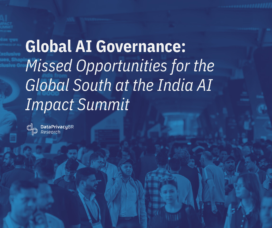
Global AI Governance: Missed Opportunities for the Global South at the India AI Impact Summit
The India AI Impact Summit generated significant expectations, particularly because it was the first edition hosted in the Global South. India’s leadership created hope that the Summit could reposition global AI governance debates by centering the priorities of developing countries, strengthening South-South coordination, and advancing greater alignment with ongoing multilateral initiatives. However, by the conclusion of the Summit, many of these expectations had not been fulfilled.
-
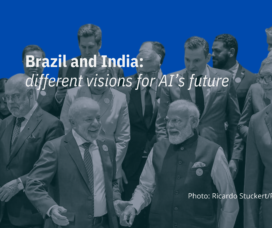
AI Summit: Brazil and India on different moves?
One of the most notable dynamics in the opening days of the AI Impact Summit (February 16–19) has been the contrast between the address delivered by Brazil’s President, Luiz Inácio Lula da Silva, and the posture adopted by India’s Prime Minister, Narendra Modi, regarding the future of global AI governance.
-
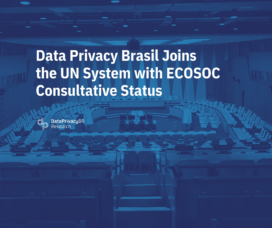
Data Privacy Brasil Joins the UN System with ECOSOC Consultative Status
Data Privacy Brasil has a strong track record of engagement in international processes, including those within the United Nations system. Now, in 2026, it officially becomes part of this system: we are an organization with consultative status with ECOSOC.
-
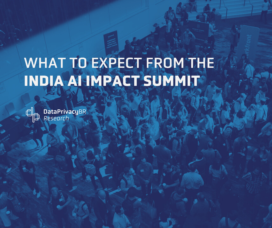
What to expect from the India AI Impact Summit
During the week of February 16–20, Data Privacy Brasil will participate in the India AI Impact Summit in New Delhi. This is yet another “AI Summit,” an event now in its fourth edition, which each year is hosted by a different country and shaped by a unique framework. It is an opportunity for each host country to place its own agenda and priorities in the spotlight within the highly contested field of global artificial intelligence governance.
-
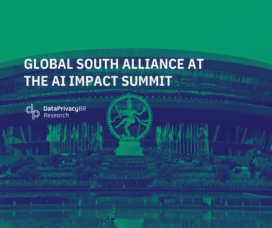
Global South Alliance at the AI Impact Summit
In February 2026, New Delhi will host the AI Impact Summit, one of the leading global forums on artificial intelligence governance. Organized by the Indian government, the Summit builds on earlier high-level initiatives such as the AI Safety Summit (Bletchley Park, 2023), the AI Seoul Summit (2024), and the AI Action Summit (Paris, 2025). Although […]
-
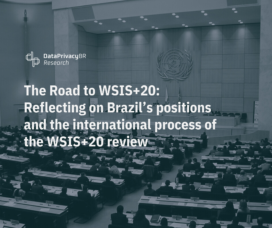
The Road to WSIS+20: Reflecting on Brazil’s positions and the international process of the WSIS+20 review
During 2025, Data Privacy Brasil engaged in an important process of the United Nations for global digital governance: the 20-year review of the World Summit on Information Society (WSIS). The first part of this engagement was translated into the report The Road to WSIS+20: Key Country Perspectives in the Twenty-Year Review of the World Summit on the Information Society, coordinated by Global Partners Digital and Global Network Initiative. Our team followed the Brazilian engagement through the process, also contributing with government delegates and other stakeholders.
-

Centering human rights in the design and adoption of DPIs: Perspectives on DPI design, adoption and implementation
Members of the Global South Alliance joined the Global Digital Public Infrastructure (DPI) Summit, convened from November 4 to 6, 2025, at the Cape Town International Convention Centre in South Africa. The theme of the event was “Digital Public Infrastructure in Practice: Implementing Tomorrow’s Digital Society Today.” The summit was co-hosted by the World Bank […]
-
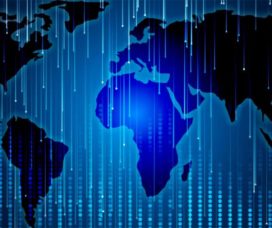
The Global DPI Summit: reframing the debate from a Global South perspective
This November, the Global DPI Summit will bring together powerful actors to champion Digital Public Infrastructure (DPI) as an opportunity for development, which demands critical thinking and not only a promotional approach. Organized by Co-Develop, the International Telecommunication Union (ITU), the United Nations Development Programme (UNDP), the UN Office of Digital and Emerging Technologies, and […]
Veja Também
-

Global AI Governance: Missed Opportunities for the Global South at the India AI Impact Summit
The India AI Impact Summit generated significant expectations, particularly because it was the first edition hosted in the Global South. India’s leadership created hope that the Summit could reposition global AI governance debates by centering the priorities of developing countries, strengthening South-South coordination, and advancing greater alignment with ongoing multilateral initiatives. However, by the conclusion of the Summit, many of these expectations had not been fulfilled.
-

Data Privacy Brasil Joins the UN System with ECOSOC Consultative Status
Data Privacy Brasil has a strong track record of engagement in international processes, including those within the United Nations system. Now, in 2026, it officially becomes part of this system: we are an organization with consultative status with ECOSOC.
-

What to expect from the India AI Impact Summit
During the week of February 16–20, Data Privacy Brasil will participate in the India AI Impact Summit in New Delhi. This is yet another “AI Summit,” an event now in its fourth edition, which each year is hosted by a different country and shaped by a unique framework. It is an opportunity for each host country to place its own agenda and priorities in the spotlight within the highly contested field of global artificial intelligence governance.
-

Global South Alliance at the AI Impact Summit
In February 2026, New Delhi will host the AI Impact Summit, one of the leading global forums on artificial intelligence governance. Organized by the Indian government, the Summit builds on earlier high-level initiatives such as the AI Safety Summit (Bletchley Park, 2023), the AI Seoul Summit (2024), and the AI Action Summit (Paris, 2025). Although […]
-

The Road to WSIS+20: Reflecting on Brazil’s positions and the international process of the WSIS+20 review
During 2025, Data Privacy Brasil engaged in an important process of the United Nations for global digital governance: the 20-year review of the World Summit on Information Society (WSIS). The first part of this engagement was translated into the report The Road to WSIS+20: Key Country Perspectives in the Twenty-Year Review of the World Summit on the Information Society, coordinated by Global Partners Digital and Global Network Initiative. Our team followed the Brazilian engagement through the process, also contributing with government delegates and other stakeholders.
-

Centering human rights in the design and adoption of DPIs: Perspectives on DPI design, adoption and implementation
Members of the Global South Alliance joined the Global Digital Public Infrastructure (DPI) Summit, convened from November 4 to 6, 2025, at the Cape Town International Convention Centre in South Africa. The theme of the event was “Digital Public Infrastructure in Practice: Implementing Tomorrow’s Digital Society Today.” The summit was co-hosted by the World Bank […]
-

The Global DPI Summit: reframing the debate from a Global South perspective
This November, the Global DPI Summit will bring together powerful actors to champion Digital Public Infrastructure (DPI) as an opportunity for development, which demands critical thinking and not only a promotional approach. Organized by Co-Develop, the International Telecommunication Union (ITU), the United Nations Development Programme (UNDP), the UN Office of Digital and Emerging Technologies, and […]
-
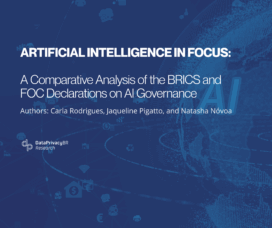
Artificial Intelligence in Focus: A Comparative Analysis of the BRICS and FOC Declarations on AI Governance
The BRICS Leaders' Declaration on Global Governance of Artificial Intelligence has gained prominence in both Brazilian and international media, as it represents a joint position by Global South countries in the ongoing contest over this emerging technology.
-
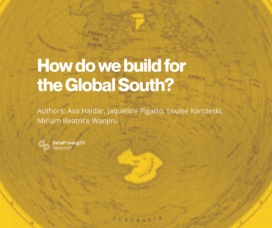
How do we build for the Global South?
We live in a world of digital divides. The Global South represents 88 percent of the world’s population and has a higher number of internet users, yet it remains under-served by digital technology. Check out the full article on our website.
-
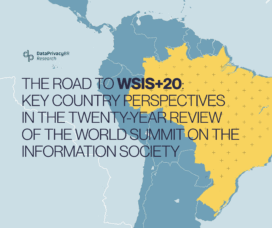
The Road to WSIS+20: Key Country Perspectives in the Twenty-Year Review of the World Summit on the Information Society
This report aims to support engagement in the WSIS+20 process by providing insight into the positions and priorities of selected governments.
-
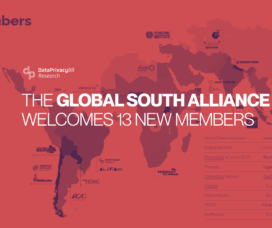
The Global South Alliance welcomes 13 new members
The Global South Alliance is a coalition formed in 2022 with the mission of unifying NGOs dedicated to the promotion of mutual learning and the advancement of digital rights with a perspective from the Global South. In May, the Global South Alliance welcomed 13 new members, reaching the total number of 26 organisations.
-

Job Opening: Digital Librarian
The Data Privacy Brasil makes the notice public with registrations until July 11th.
-
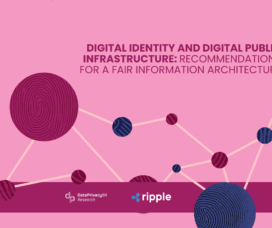
Report | Digital Identity and Digital Public Infrastructure: recommendations for a fair information architecture
Data Privacy Brasil launches its new report entitled “Digital Identity and Digital Public Infrastructure: recommendations for a fair information architecture”. The study examines the impact of a Digital Public Infrastructure (DPI), especially digital identity applications, on the protection of personal data in light of the Brazilian Federal Constitution (CF) and the General Data Protection Law (LGPD).
-
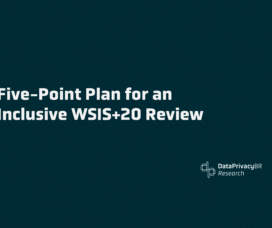
Five-Point Plan for an Inclusive WSIS+20 Review
As stakeholders engaged in the WSIS+20 Review process, organizations sign the petition presenting recommendations to help operationalize the WSIS+20 review modalities in order to ensure transparency, inclusion, and meaningful stakeholder engagement.
-
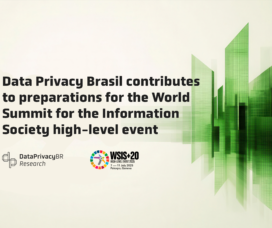
Data Privacy Brasil contributes to preparations for the World Summit for the Information Society high-level event
The event, which is co-organized by the ITU, UNESCO, UNDP, and UNCTAD, takes place in July, and this March, stakeholders were able to send their suggestions regarding the format and content to be debated, especially in light of the review process.
-
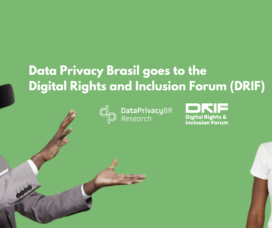
Data Privacy Brasil goes to the Digital Rights and Inclusion Forum (DRIF)
For the third consecutive year, Data Privacy Brasil will participate in the Digital Rights and Inclusion Forum (DRIF). DRIF – formerly known as the Internet Freedom Forum (IFF) – is an annual forum organized by Paradigm Initiative (PIN), since 2013, to be a space for discussions on global issues related to digital rights and inclusion.
-
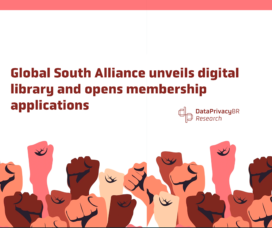
Global South Alliance unveils digital library and opens membership applications
The GSA invites organizations to express their interest in joining the network by completing the application form available until April 24.
-
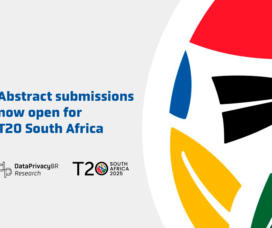
Abstract submissions now open for T20 South Africa
The Think20 South Africa invites researchers from around the world to contribute to a dynamic exchange of ideas on today's most pertinent challenges. The deadline for submitting abstracts is February 10, 2025.
-
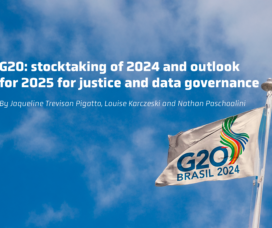
G20: stocktaking of 2024 and outlook for 2025 for justice and data governance
In 2024, Data Privacy Brasil took on a new and exciting challenge: participating in the G20 ecosystem, during the Brazilian presidency, through the official engagement group for think tanks, Think 20 (T20). Check out the text to learn more about Data's work at the G20.
-
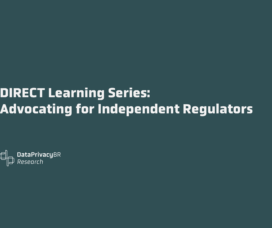
DIRECT Learning Series: Advocating for Independent Regulators
The 6th workshop took place on November 6th, 2024, in the context of the Data Rights and Enforcement through Community Trust (DIRECT) Learning Series, an ongoing thematic series of workshops with members of the DIRECT consortium, supported by Internews.
-
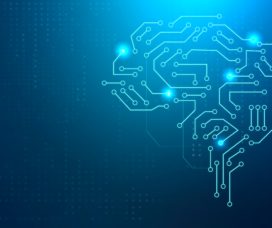
Exploring Opportunities in the Digital Economy and AI at the G20
The task force 5 of T20 Brasil has engaged several international think tanks to provide ideas and policy proposals on crucial areas of technological development, such as AI and Digital Public Infrastructures. This includes encouraging G20 nations to adopt policies that protect individual rights while fostering innovation.
-

DIRECT Learning Series: data protection training and capacity building
The 5th workshop took place on October 2nd, 2024, in the context of the Data Rights and Enforcement through Community Trust (DIRECT) Learning Series, an ongoing thematic series of workshops with members of the DIRECT consortium, supported by Internews.
-
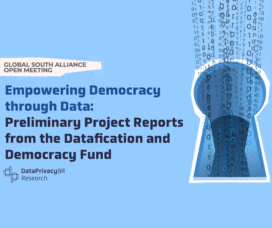
Empowering Democracy through Data: preliminary project reports from the DDF
The Global South Alliance wil host its next open meeting on October 22, 2024, where grantees from the first cohort of the Datafication and Democracy Fund (DDF) will present their impactful research.
-
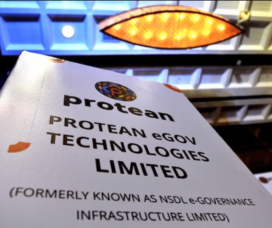
Protean acknowledged for leadership in digital public infrastructure
A report from Data Privacy Brasil underscores how DPI can be leveraged to create environments where data privacy and security are prioritized.
-
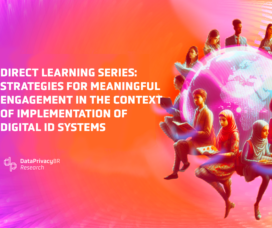
DIRECT Learning Series: strategies for meaningful engagement in the context of implementation of Digital ID systems
This workshop took place on August 28th, 2024, in the context of the Data Rights and Enforcement through Community Trust (DIRECT) Learning Series, an ongoing thematic series of workshops with members of the DIRECT consortium, supported by Internews.
-
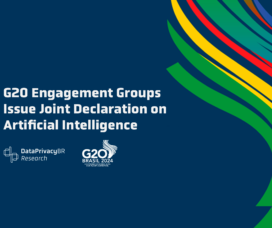
G20 Engagement Groups Issue Joint Declaration on Artificial Intelligence
On Tuesday (10), the main G20 engagement groups, including Civil 20 (C20), Labor 20 (L20), Think 20 (T20) and Women 20 (W20), announced a groundbreaking joint statement on the ethical, sustainable and inclusive development and deployment of artificial intelligence (AI).
-
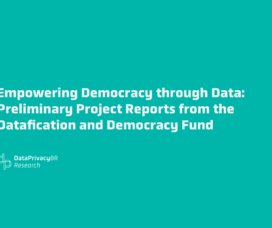
Empowering Democracy through Data: Preliminary Project Reports from the Datafication and Democracy Fund
The Global South Alliance held its first meeting with the organizations covered by the Datafication and Democracy Fund. On the occasion, each of the five organizations - Like a Palm Tree (Africa), Center of Security and Citizenship Studies (LatAm), Corporación Cambio Sostenible (LatAm), Criminal Justice & Policy Accountability Project (India), and Ikigai Innovation Initiative (Africa) - had the opportunity to present the preliminary results of their projects and hear feedbacks from the GSA members.
-
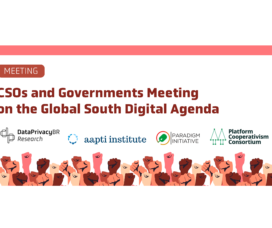
CSOs and Governments Meeting on the Global South Digital Agenda
On September 21st and 24th, the event “Open Dialogue: Global South Alliance and Governments for an Inclusive Digital Agenda” will take place, promoted by the organizations Data Privacy Brasil, Aapti Institute, Paradigm Initiative and PCC (The New School). The event aims to provide an open conversation with diplomats about the international agenda for IPRs, AI, GDC implementation and G20 continuity.
-
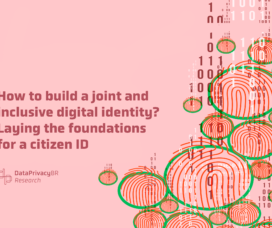
How to build a joint and inclusive digital identity? Laying the foundations for a citizen ID
Do you know what an identity is? Thinking about facilitating access to the topic, Data Privacy Brasil has developed a series of content to provide the foundations and tools possible for all the details on the subject. With this, we will be able to discuss, as a community, what we want with a digital identity and how we can achieve it.
-
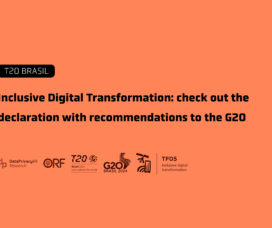
Inclusive Digital Transformation: check out the declaration with recommendations to the G20
In the document, six priorities were defined to deal with issues such as digital inclusion and meaningful universal connectivity; and challenges, opportunities and governance of artificial intelligence.
-
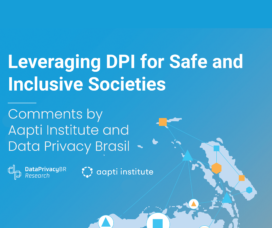
Leveraging DPI for Safe and Inclusive Societies
Aapti and Data Privacy Brasil have submitted their contribution to the Office of the United Nations Secretary-General's Envoy on Technology (OSET) and the United Nations Development Programme (UNDP) regarding the report "Leveraging DPI for Safe and Inclusive Societies".
-
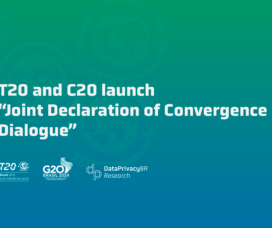
T20 and C20 launch “Joint Declaration of Convergence Dialogue”
On the 2nd and 3rd of July, a Mid-Term Conference took place in Rio de Janeiro, a T20 event with the participation of leaders from national and international think tanks, members of academia, representatives of the private and public sectors and civil society to discuss and propose solutions to the main global challenges.
-

Datafication and Democracy Fund welcomes five organizations from the Global South for short-term projects
The Datafication and Democracy Fund Committee, composed of Data Privacy Brasil, Paradigm Initiative, and Aapti Institute, is pleased to announce the five organizations awarded funding for a short-term research project.
-
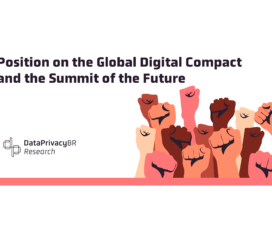
Position on the Global Digital Compact and the Summit of the Future
Between the 9th and 10th of May, the UN Civil Society Conference is happening in Nairobi. The event is presented as an opportunity to engage civil society in preliminary discussions ahead of the Summit of the Future.
-
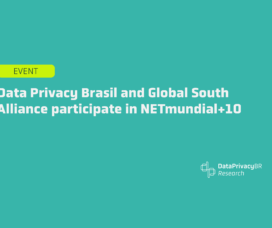
Data Privacy Brasil and Global South Alliance participate in NETmundial+10
Between April 29th and 30th, the NETmundial+10 took place in São Paulo. Building upon the event and the NETmundial Declaration of 2014, this event focused on strengthening global multistakeholder governance for the Internet and digital technologies, as well as conveying messages to global actors for better coordination of various ongoing processes.
-
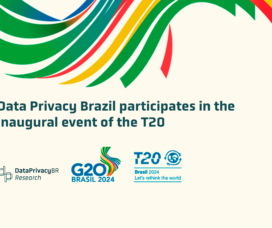
Data Privacy Brazil participates in the inaugural event of the T20
Between March 4th and 6th, the Organizing Committee of T20 Brazil - composed of CEBRI, FUNAG, and IPEA - held the first official event of the engagement group. The event took place entirely virtually and was openly broadcast to the public.
-

Inclusive Digital Transformation in the T20
The year 2024 marks Brazil's presidency in the G20, the group of the world's largest economies, chaired by our country for the first time. It is a year of great opportunity for Brazil to influence a broad global governance agenda, prioritizing issues such as inequality, climate change, and, of course, digital transformations.
-
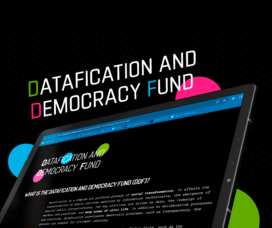
Data Privacy Brasil, Paradigm Initiative and Aapti Institute announce the launch of the “Datafication and Democracy Fund”
The fund aims to finance activities that strengthen the work of NGOs in the Global South on issues of datafication and democracy
-
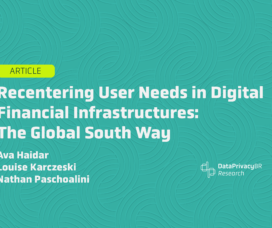
Recentering User Needs in Digital Financial Infrastructures: The Global South Way
Through India’s G20 leadership in 2023, global agendas of digital transformation and financial growth have come to be intimately reoriented to challenges, priorities and special developments in the Global South.
-

At UNCTAD eWeek, Data Privacy Brasil will discuss the intersection between digital economy and human rights in AI regulation
The UNCTAD eWeek, an initiative of the United Nations Conference on Trade and Development (UNCTAD) in partnership with eTrade for all, will occur from the 4th until the 8th of December.
-
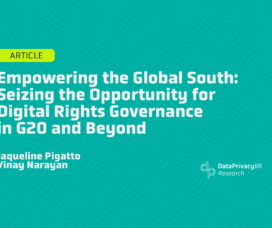
Empowering the Global South: Seizing the Opportunity for Digital Rights Governance in G20 and Beyond
The G20 represents a critical policy space for addressing emergent challenges on a global scale and its importance as a platform is pronounced when we consider its significance for the Global South.
-
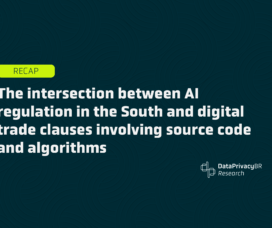
The intersection between AI regulation in the South and digital trade clauses involving source code and algorithms
Recap of Session 43 of the WTO’s 2023 Public Forum organized by Data Privacy Brasil and REBRIP
-
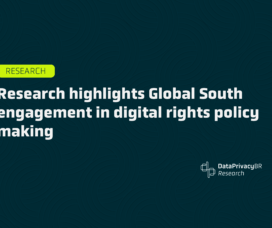
Research highlights Global South engagement in digital rights policy making
The Data Privacy Brasil Research Association announces the launch of the research report on Global South perspectives on international engagement in digital rights.
-
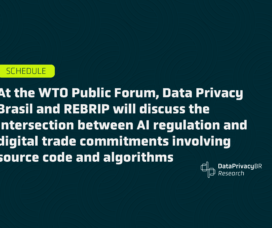
At the WTO Public Forum, Data Privacy Brasil and REBRIP will discuss the intersection between AI regulation and digital trade commitments involving source code and algorithms.
The WTO Public Forum 2023 will take place between September 12th and 15th in Geneva.
-

Data Privacy Brasil’s contribution to the Thematic Deep Dive of Artificial Intelligence and other Emerging Technologies of the Global Digital Compact
As other civil society organizations already pointed out, notable preference was given to the speech of Member States, UN agencies, and the private sector, at the expense of human rights civil society organizations, which prevented the speech that had been prepared by the DBPR and other civil society stakeholders.
-
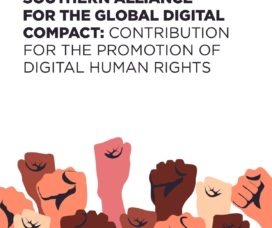
Southern Alliance for the Global Digital Compact
Responding to the call made by the United Nations, the Data Privacy Brazil Research Association, together with organizations from the Global South, presents a contribution to the Global Digital Compact.
-
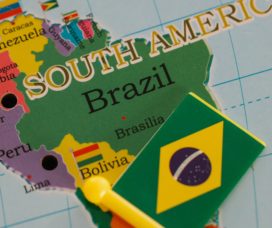
Data Privacy Brasil Research Association contributes to UN open call on the relationship between human rights and technical standard-setting processes
We received a call as an opportunity to submit suggestions to inform the OHCHR report on the relationship between human rights and standard-setting processes for new and emerging digital technologies.
-
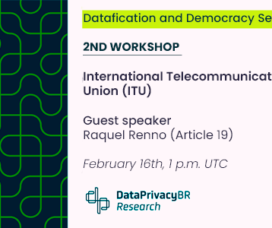
Our second workshop of a series about technical forum talks about the International Telecommunications Union
In the second meeting of the Datafication and Democracy Workshop Series, we received Raquel Renno, Digital Programme Officer of Article 19, who spoke about the International Telecommunication Union (ITU) for third sector organizations.
-
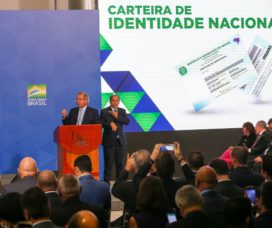
Why should we all pay attention to the Brazilian Digital ID system?
The implementation of digital identity systems is increasing around the world, especially in Global Southern countries. The model widely adopted is known as Big ID, promoted by or linked to public administration bodies which use centralized biometric databases to identify and authenticate citizens (Access Now, 2021).
DataPrivacyBr Research | Content under licensing CC BY-SA 4.0

